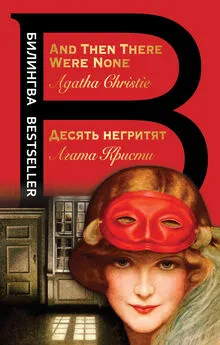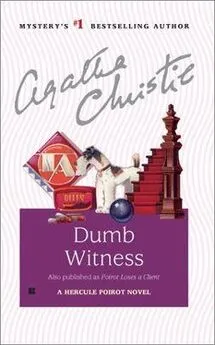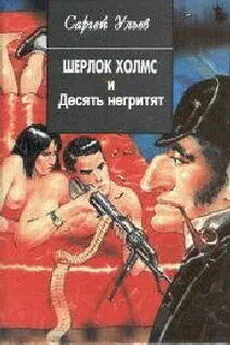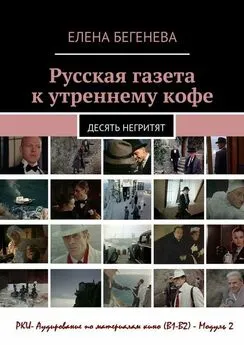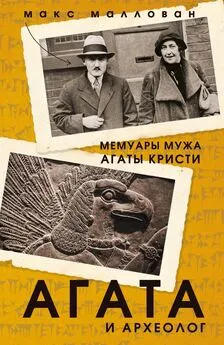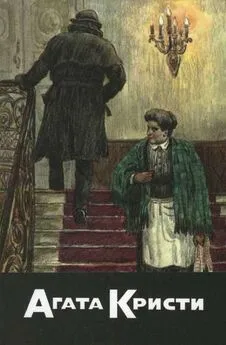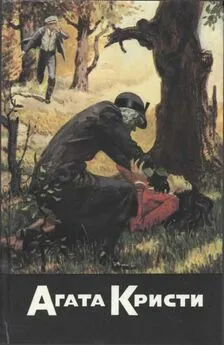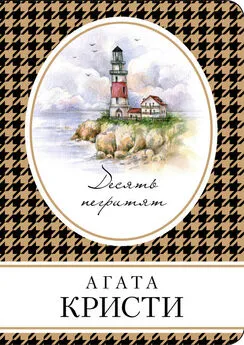Агата Кристи - Десять негритят / And Then There Were None
- Название:Десять негритят / And Then There Were None
- Автор:
- Жанр:
- Издательство:Литагент 1 редакция (7)
- Год:2019
- Город:Москва
- ISBN:978-5-04-107041-0
- Рейтинг:
- Избранное:Добавить в избранное
-
Отзывы:
-
Ваша оценка:
Агата Кристи - Десять негритят / And Then There Were None краткое содержание
В формате pdf A4 сохранен издательский макет.
Десять негритят / And Then There Were None - читать онлайн бесплатно ознакомительный отрывок
Интервал:
Закладка:
«Nobody, sir. Nobody at all.»
«You’re sure of that?»
«Quite sure, sir.»
Wargrave said:
«I am not yet clear as to the purpose of our Unknown host in getting us to assemble here. But in my opinion this person, whoever he may be, is not sane in the accepted sense of the word. He may be dangerous. In my opinion it would be well for us to leave this place as soon as possible. I suggest that we leave tonight.»
Rogers said: «I beg your pardon, sir, but there’s no boat on the island.»
«No boat at all?»
«No, sir.»
«How do you communicate with the mainland?»
«Fred Narracott, he comes over every morning, sir. He brings the bread and the milk and the post, and takes the orders.»
Mr. Justice Wargrave said: «Then in my opinion it would be well if we all left tomorrow morning as soon as Narracott’s boat arrives.»
There was a chorus of agreement with only one dissentient voice. It was Anthony Marston who disagreed with the majority.
«A bit unsporting, what?» he said. «Ought to ferret out the mystery before we go. Whole thing’s like a detective story. Positively thrilling.»
The judge said acidly:
«At my time of life, I have no desire for ‘thrills,’ as you call them.»
Anthony said with a grin:
«The legal life’s narrowing! I’m all for crime! Here’s to it.»
He picked up his drink and drank it off at a gulp. Too quickly, perhaps. He choked – choked badly. His face contorted, turned purple. He gasped for breath – then slid down off his chair, the glass falling from his hand.
Chapter 5
I
It was so sudden and so unexpected that it took every one’s breath away. They remained stupidly staring at the crumpled figure on the ground.
Then Dr. Armstrong jumped up and went over to him, kneeling beside him. When he raised his head his eyes were bewildered.
He said in a low awe-struck whisper: «My God! he’s dead!»
They didn’t take it in. Not at once.
Dead? Dead? That young Norse God in the prime of his health and strength. Struck down all in a moment. Healthy young men didn’t die like that, choking over a whiskey and soda…
No, they couldn’t take it in.
Dr. Armstrong was peering into the dead man’s face. He sniffed at the blue twisted lips. Then he picked up the glass from which Anthony Marston had been drinking.
General Macarthur said: «Dead: D’you mean the fellow just choked and – and died?»
The physician said: «You can call it choking if you like. He died of asphyxiation right enough.»
He was sniffing now at the glass. He dipped a finger into the dregs and very cautiously just touched the finger with the tip of his tongue.
His expression altered.
General Macarthur said:
«Never knew a man could die like that – just of a choking fit!»
Emily Brent said in a clear voice:
«In the midst of life we are in death.»
Dr. Armstrong stood up. He said brusquely:
«No, a man doesn’t die of a mere choking fit. Marston’s death wasn’t what we call a natural death.»
Vera said almost in a whisper: «Was there – something – in the whiskey?»
Armstrong nodded.
«Yes. Can’t say exactly. Everything points to one of the cyanides. No distinctive smell of Prussic Acid, probably Potassium Cyanide. It acts pretty well instantaneously».
The judge said sharply: «It was in his glass?»
«Yes.»
The doctor strode to the table where the drinks were. He removed the stopper from the whiskey and smelt and tasted it. Then he tasted the soda water. He shook his head.
«They’re both all right.»
Lombard said: «You mean – he must have put the stuff in his glass himself!»
Armstrong nodded with a curiously dissatisfied expression. He said:
«Seems like it.»
Blore said: «Suicide, eh? That’s a queer go.»
Vera said slowly:
«You’d never think that he would kill himself. He was so alive. He was – oh enjoying himself! When he came down the hill in his car this evening he looked he looked – oh, I can’t explain!»
But they knew what she meant. Anthony Marston, in the height of his youth and manhood, had seemed like a being who was immortal. And now, crumpled and broken, he lay on the floor.
Dr. Armstrong said: «Is there any possibility other than suicide?»
Slowly every one shook his head. There could be no other explanation. The drinks themselves were untampered with. They had all seen Anthony Marston go across and help himself. It followed therefore that any Cyanide in the drink must have been put there by Anthony Marston himself.
And yet – why should Anthony Marston commit suicide?
Blore said thoughtfully: «You know, doctor, it doesn’t seem right to me. I shouldn’t have said Mr. Marston was a suicidal type of gentleman.»
Armstrong answered: «I agree.»
II
They had left it like that. What else was there to say?
Together Armstrong and Lombard had carried the inert body of Anthony Marston to his bedroom and had laid him there covered over with a sheet.
When they came downstairs again, the others were standing in a group, shivering a little, though the night was not cold.
Emily Brent said:
«We’d better go to bed. It’s late.»
It was past twelve o’clock. The suggestion was a wise one – yet every one hesitated. It was as though they clung to each other’s company for reassurance.
The judge said: «Yes, we must get some sleep.»
Rogers said: «I haven’t cleared yet – in the dining-room.»
Lombard said curtly: «Do it in the morning.»
Armstrong said to him: «Is your wife all right?»
«I’ll go and see, sir.»
He returned a minute or two later.
«Sleeping beautiful, she is.»
«Good,» said the doctor. «Don’t disturb her.»
«No, sir. I’ll just put things straight in the dining-room and make sure everything’s locked up right, and then I’ll turn in.»
He went across the hall into the dining-room.
The others went upstairs, a slow unwilling procession.
If this had been an old house, with creaking wood, and dark shadows, and heavily panelled walls, there might have been an eerie feeling. But this house was the essence of modernity. There were no dark corners – no possible sliding panels – it was flooded with electric light – everything was new and bright and shining. There was nothing hidden in this house, nothing concealed. It had no atmosphere about it.
Somehow, that was the most frightening thing of all…
They exchanged good-nights on the upper landing. Each of them went into his or her own room, and each of them automatically, almost without conscious thought, locked the door…
III
In his pleasant softly tinted room, Mr. Justice Wargrave removed his garments and prepared himself for bed.
He was thinking about Edward Seton.
He remembered Seton very well. His fair hair, his blue eyes, his habit of looking you straight in the face with a pleasant air of straightforwardness. That was what had made so good an impression on the jury.
Llewellyn, for the Crown, had bungled it a bit. He had been over-vehement, had tried to prove too much. Matthews, on the other hand, for the Defence, had been good. His points had told. His cross-examinations had been deadly. His handling of his client in the witness box had been masterly.
And Seton had come through the ordeal of cross-examination well. He had not got excited or over-vehement. The jury had been impressed. It had seemed to Matthews, perhaps, as though everything had been over bar the shouting. The judge wound up his watch carefully and placed it by the bed.
He remembered exactly how he had felt sitting there – listening, making notes, appreciating everything, tabulating every scrap of evidence that told against the prisoner.
He’d enjoyed that case! Matthews’ final speech had been first-class. Llewellyn, coming after it, had failed to remove the good impression that the defending counsel had made.
And then had come his own summing up…
Carefully, Mr. Justice Wargrave removed his false teeth and dropped them into a glass of water. The shrunken lips fell in. It was a cruel mouth now, cruel and predatory.
Hooding his eyes, the judge smiled to himself.
He’d cooked Seton’s goose all right!
With a slightly rheumatic grunt, he climbed into bed and turned out the electric light.
IV
Downstairs in the dining-room, Rogers stood puzzled.
He was staring at the china figures in the centre of the table.
He muttered to himself:
«That’s a rum go! I could have sworn there were ten of them.»
V
General Macarthur tossed from side to side.
Sleep would not come to him.
In the darkness he kept seeing Arthur Richmond’s face.
He’d liked Arthur – he’d been damned fond of Arthur. He’d been pleased that Leslie liked him too. Leslie was so capricious. Lots of good fellows that Leslie would turn up her nose at and pronounce dull. «Dull!» Just like that.
But she hadn’t found Arthur Richmond dull. They’d got on well together from the beginning. They’d talked of plays and music and pictures together. She’d teased him, made fun of him, ragged him. And he, Macarthur, had been delighted at the thought that Leslie took quite a motherly interest in the boy.
Motherly indeed! Damn fool not to remember that Richmond was twenty-eight to Leslie’s twenty-nine.
He’d loved Leslie. He could see her now. Her heart-shaped face, and her dancing deep grey eyes, and the brown curling mass of her hair. He’d loved Leslie and he’d believed in her absolutely.
Out there in France, in the middle of all the hell of it, he’d sat thinking of her, taken her picture out of the breast pocket of his tunic.
And then – he’d found out!
It had come about exactly in the way things happened in books. The letter in the wrong envelope. She’d been writing to them both and she’d put her letter to Richmond in the envelope addressed to her husband. Even now, all these years later, he could feel the shock of it – the pain…
God, it had hurt!
And the business had been going on some time. The letter made that clear. Week-ends! Richmond’s last leave…
Leslie – Leslie and Arthur!
God damn the fellow! Damn his smiling face, his brisk «Yes, sir.» Liar and hypocrite! Stealer of another man’s wife!
It had gathered slowly – that cold murderous rage.
He’d managed to carry on as usual – to show nothing. He’d tried to make his manner to Richmond just the same.
Had he succeeded? He thought so. Richmond hadn’t suspected. Inequalities of temper were easily accounted for out there, where men’s nerves were continually snapping under the strain.
Only young Armitage had looked at him curiously once or twice. Quite a young chap, but he’d had perceptions, that boy.
Armitage, perhaps, had guessed – when the time came.
He’d sent Richmond deliberately to death. Only a miracle could have brought him through unhurt. That miracle didn’t happen. Yes, he’d sent Richmond to his death and he wasn’t sorry. It had been easy enough. Mistakes were being made all the time, officers being sent to death needlessly. All was confusion, panic. People might say afterwards, «Old Macarthur lost his nerve a bit, made some colossal blunders, sacrificed some of his best men.» They couldn’t say more.
But young Armitage was different. He’d looked at his commanding officer very oddly. He’d known, perhaps, that Richmond was being deliberately sent to death.
Читать дальшеИнтервал:
Закладка:
